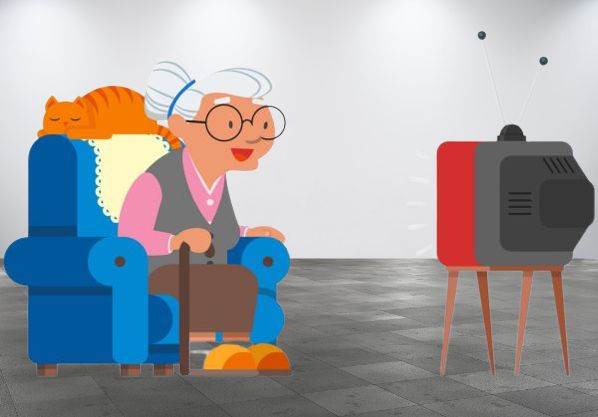Leaving – Practically
How to Do It
By Fr. Dr. Daniel Johnson
I have heard the story of a drunken man who once rowed his boat all night long but ended up getting nowhere. He had tied his boat firmly to a tree but forgot to untie it because he was in ‘high spirits.’ He rowed hard all night but reached nowhere.
Some marriages are like that; the husband or the wife is still ‘tied’ up to other relationships even after marriage. So, no matter how hard they try, they reach nowhere!
A famous Christian counselor, based on his more than 25 years of experience, has said that just about every marriage problem he has dealt with had to do with one or the other of the marriage partners violating the Genesis 2:24 principle.
Genesis 2:24 says, “For this cause, a man shall leave his mother and father and cleave to his wife, and the two shall become one flesh.”
Leave – What does the Bible
mean by this word?
Let us think of a baby growing in a mother’s womb. The baby starts as a tiny 2-cell structure. But soon you have a fetus being formed; the heart starts beating, the kidneys, lungs, liver, and other organs start forming; the baby can feel and hear sounds; it moves, kicks, and almost 9 months later, it’s time to come out into the real world!
Labor pain starts for the mother, and slowly, ‘push by push,’ the baby is born! It’s a joy to behold. However, after the baby is fully out of the mother’s womb, there is still something that needs to be done. The umbilical cord needs to be cut. That is the part that had been attached to the mother for the past 9 months, from which the baby derived all its nutrition.
Only after the umbilical cord is cut is the baby truly separate from the mother. Only then can it be called a separate individual. Until now, it was fully dependent on the mother for its survival.
That is the kind of picture being shown here by the word ‘leave.’
Word meaning:
The key word ‘leave’ (aw-zab’) means to forsake, leave destitute, refuse. It is used of loosening bands, as of a beast from its bonds. The idea here is that the man forsakes his parents (relatively). He cuts himself off from them. He breaks the ‘union’ with them, almost in the sense of divorcing himself and becoming ‘subsequently single.’
Before marriage, the man or the woman is dependent to a large extent on their parents and family. There is the ‘umbilical cord’ still attached. However, when entering into marriage, this umbilical cord must be cut and separated.
In what all ways should you leave?
Emotionally: “I am going home!” or ‘the wife who wants to go home.’
Akhil and Renu had been married for less than a year when problems started erupting in their home. Akhil has a workshop and works very hard each day. Sometimes he returns only by 6 or 6:30 pm. Renu, on the other hand, does not have a job. They stay in a rented house, only a street away from her parents; Renu was the youngest child in the family. During the mornings, when she is lonely, she used to go to her mother’s house and spend time there. One day when Akhil returned, she asked him to buy her something; being tired, he said he’ll do it later. She said he never cares for her and started crying. Shocked by her reply, Akhil said he’s tired and he’ll do it later. Then she said that her father would always buy things for her mother. Akhil said, ‘your father did not work as hard as me’; Renu did not like what her husband said about her father. One thing led to another, and Akhil got angry and said some hurtful things to her. Finally, she said ‘I can’t take it anymore; I am going to my home.’
Shocked by what she said, he got really angry and said – ‘Then go. That’s better.’
She took her bag, put some clothes in, and went to her parents’ house.
This is a common scene in many marriages. When there has been some small misunderstanding between the husband and the wife, and when the argument heats up, the wife starts crying (or becomes emotional) and says something like ‘I can’t live with you anymore; I am going home; I’m going home to my mother….’
I’m sure that a lot of us can identify with this incident. However, if you closely listen to those statements made, you’ll soon realize something; the wife hasn’t left her home yet! One should genuinely ask the wife – where is your home?
Your home is where your husband and your children are! Your home is no longer where you grew up with your parents. The reason why this question arose is ample proof to the fact that ’emotionally’ the wife has not left her parents till now. She may have physically left her home, but not emotionally.
When a problem comes, a wife or husband who has not left his or her parents emotionally will always try to find solace by calling them over the phone or going to their parent’s house, rather than sticking it out and finding a solution to the problem.
Each time problems happen, or misunderstandings happen, you cannot ‘run away’ to the safety and security of your parent’s house! What will you do when your parents are no more? Where will you run to? Whom will you ask?
So what is the solution?
After marriage, it’s like you are on a big boat surrounded by a vast ocean—only you, your spouse, and your children. When problems occur, you cannot jump ship. There is only water all around, and you might feel overwhelmed. So, no matter what happens, stay on the boat and work through the differences.
A piece of advice to the wife: If you still think that you can “go home” when problems arise, understand that you haven’t fully committed. When a misunderstanding occurs, calmly explain how you feel to your husband.
In this case, instead of saying, “You are not like my father, etc.,” Renu should have expressed, “I genuinely appreciate your hard work. I understand that you’re tired, but it would be nice if you could pick up some groceries on your way home. When you do such things for me, it makes me feel valued, and I know you care for me.”
A piece of advice to the husband: When your wife becomes emotional and says, “I want to go to my mother” or “I want to go home,” she doesn’t actually mean she wants to leave. I know it may sound that way, but she’s simply seeking your attention because she feels lonely and hurt. So, please don’t respond with “go home.” That’s the last thing she wants to hear.
In this case, all Akhil had to say was, “I’m sorry, Renu; I was too tired after work and forgot, but I can buy it now. Please don’t leave; this is your home, and stay with me.”
Or,
“Please, make me a glass of hot tea. Then I will go and buy it.” If you use those words, your wife will most likely respond with, “Oh, don’t worry; it’s too late now; you can buy it tomorrow.” But, husband, please remember to buy it tomorrow!
“He doesn’t love me; he loves his mother more.”
Ashokan and Daisy, along with their two children, are like many other families who live with their parents. Daisy is a school teacher, and Ashokan is a government servant. They have been married for 12 years, but recently, their relationship has started to sour.
The most recent incident that caused friction between them was as follows: Daisy returned from her school around 5 pm. By that time, her two children were at home, playing. She is very systematic and has a schedule for everything: playtime until 5:30, then a shower, followed by study time until 8 pm, then family prayer and dinner, and finally, bedtime at 10 pm. Things generally go well, except for one thing—the presence of her stubborn mother-in-law.
On this fateful day, everything was going well until after 7 pm when the mother-in-law switched on the TV to watch her regular serial. This was also the children’s study time, and since exams were going on, Daisy asked her mother-in-law to switch it off. The house they lived in had only 2 rooms, so the children’s study room was also the common room where the TV was kept. The mother-in-law was not happy and started saying, “I know that you don’t want me to do anything.”
Daisy requested her mother-in-law to at least reduce the volume of the TV since the children were studying. When that didn’t work, Daisy asked her husband, Ashokan, to intervene and solve the problem. However, instead of asking his mother to reduce the volume or switch the TV off, Ashokan told Daisy, “The children need to learn to study even when there is noise.” Daisy was really upset now, and things went downhill from there. Daisy said something about Ashokan not standing up to his mother, claiming that “he loves his mother more than her.” Her mother-in-law soon defended her son, saying Daisy always wanted to rule the house, and the argument continued. As a result, the children could not study for the exams and ended up with poor marks.
The truth of the matter was that Ashokan never made decisions on his own; it was always his mother who made decisions for him. If his mother said the shirt he was wearing was not good, he would change it, even if Daisy liked it. He would go out for movies only if his mother was coming along. For everything and anything, his mother’s permission was required.
Can you see where the problem lies? It’s simply that Ashokan has not yet emotionally separated from his mother. It is like the umbilical cord has still not been cut! For anything and everything, he still finds comfort and security in his mother. Consequently, he has never made a decision on his own and cannot stand it when someone questions his mother, even if it’s his wife. No wonder that his wife feels like he loves his mother more than her!
Solution:
If Ashokan were a separate individual, he would have realized that it was in the best interest of everyone, especially his family, for him to tell his mother to either switch off the TV or reduce the volume of the TV. He should have said, “Mother, I know that you like to watch that program, but Daisy is trying hard to help our children study. So please help her by turning off the TV or reducing the volume.”
A word to husbands: Do you still feel like that Siamese twin with your mother or father always telling you what to do, what not to do? Do you always run to them for solutions, or when problems happen within your family, blindly listen to your parents?
A word to mothers and mother-in-laws: Please do not ‘direct’ your grown-up children’s lives! Before marriage, you could tell your son where to go, what time to come home, etc. But after marriage, back off a little. Allow your son to grow up and take decisions on his own for his wife and children. Maybe they will make mistakes, but that is how they learn. If you constantly direct and guide them, your son will always be a small child, incapable of taking decisions and leading his family. After you are gone, your own son may curse you for what you’ve done.
I am not asserting that you should leave your mother or not take care of your parents. No, by no means. Even the Bible talks about taking care and giving honor to your parents. I am also not saying that you should not seek advice from your parents; it’s wise to ask for counsel. But there has to be a balance. If a husband has to make balanced and correct decisions, he has to ‘leave’ his parents emotionally and become his own person, capable of making wise and correct decisions with the future in mind.
In the next article, we will explore this subject in more detail.






